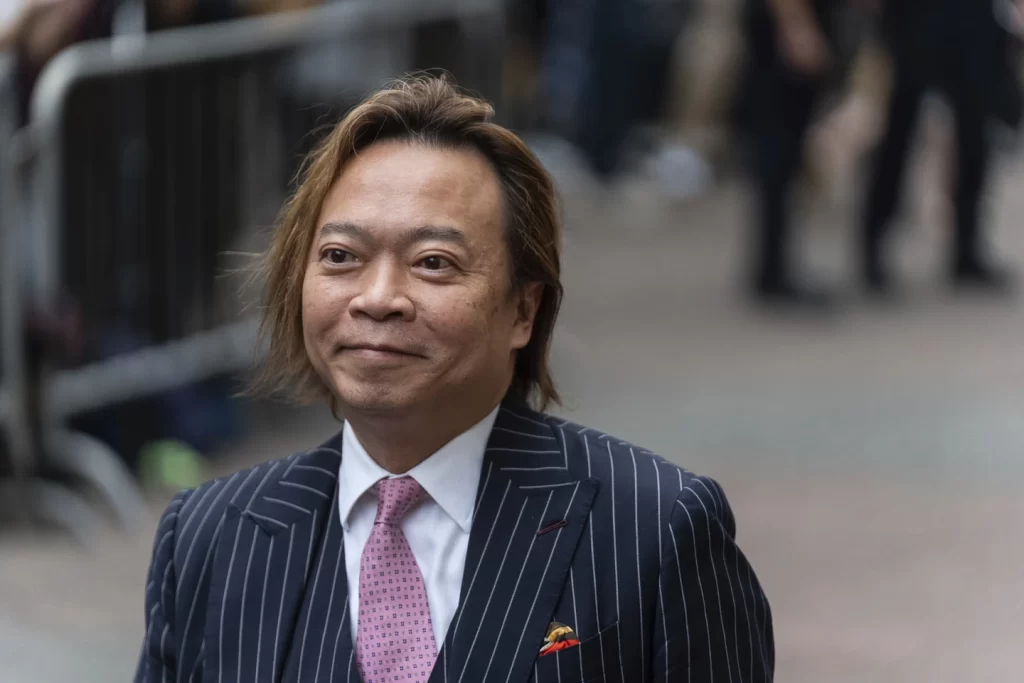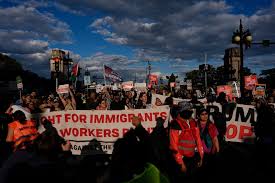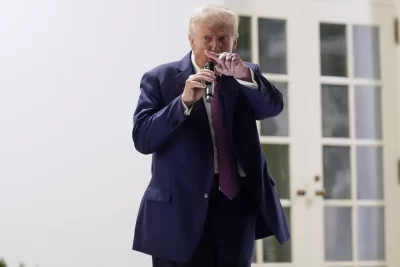
HONG KONG— A Hong Kong court Thursday convicted 14 pro-democracy activists in the city’s biggest national security case under a law imposed by Beijing that has all but wiped out public dissent.
Those found guilty of conspiracy to commit subversion included former lawmakers Leung Kwok-hung, Lam Cheuk-ting, Helena Wong and Raymond Chan, and they could face up to life in prison when sentenced later. The two defendants acquitted were former district councilors Lee Yue-shun and Lawrence Lau.
They were among 47 democracy advocates who were prosecuted in 2021 for their involvement in an unofficial primary election. Prosecutors had accused them of attempting to paralyze Hong Kong’s government and topple the city’s leader by securing the legislative majority necessary to indiscriminately veto budgets.
In a summary of the verdict distributed to media, the court said the election participants had declared they would “either actively use or use the power conferred on the (Legislative Council) by the (Basic Law) to veto the budgets.”
Under the Basic Law, the chief executive can dissolve the legislature if a budget cannot be passed but the leader would have to step down if the budget is again vetoed in the newly formed legislature.
In the full, 319-page verdict, the court also said if the plan to veto bills would lead to the dissolution of the legislature, it meant “the implementation of any new government policies would be seriously hampered and essentially put to a halt.”
“The power and authority of both the Government and the Chief Executive would be greatly undermined,” the court said in the verdict. “In our view … that would create a constitutional crisis for Hong Kong.”
The judges concluded that “unlawful means” are not limited only to criminal acts, and that it was not necessary for the prosecution to prove the accused knew that the means to be used were “unlawful.”
The court was adjourned until later Thursday, and Judge Andrew Chan did not give further details on the court’s reasoning.
Lau, who was acquitted, told reporters that he should not be the focus at the moment as other defendants in the case warrant the public’s concern and love.
He said if there’s any “star” in the case, the judgment should be “the star” because it set out the logic and perspectives of the judges. “This is part of our rule of law,” he said.
The court acquitted Lau after it found he had not mentioned vetoing the budget in his election campaign and the court was unable to conclude he had intended to subvert state power.
Lee, the other defendant found not guilty, thanked the public for caring about the case over the past few years. He said he could not say more about the verdict because the prosecution might appeal against his acquittal.
“I feel calm, as I have always been,” he said. In an earlier Facebook post, he said Thursday was like a special graduation ceremony for him, though graduation is usually about sharing happiness with families and friends.
“This perhaps best reflects the common helplessness of our generation,” he had said in his post Wednesday.
Lee, like Lau, was acquitted after the court found no evidence he mentioned vetoing in an election forum, nor had he personally expressed his stance on using veto power to force the government to accede to protester demands.
While Lee — then a member of the now-defunct Civic Party — had adopted a similar political platform as other party members, the court took into account that he was a latecomer to the party’s campaign for the primary and that he would have had little choice but to adopt the platform used by others. Thus, the court said in the verdict it could not be sure he had intended to subvert state power.
Observers said the subversion case illustrated how the security law is being used to crush the political opposition following huge anti-government protests in 2019. But the Beijing and Hong Kong governments insisted the law has helped bring back stability to the city and that judicial independence was being protected.
When Britain handed Hong Kong back to China in 1997, Beijing promised to retain the city’s Western-style civil liberties for 50 years. However, since the introduction of the 2020 law, Hong Kong authorities have severely limited free speech and assembly under the rubric of maintaining national security. Many activists were arrested, silenced or forced into self-exile. Dozens of civil society groups disbanded.
The activists prosecuted in the main case included legal scholar Benny Tai, former student leader Joshua Wong and a dozen former lawmakers including Leung Kwok-hung and Claudia Mo.
Thirty-one of them, including Tai, Wong and Mo, pleaded guilty to the charge of conspiracy to commit subversion. They have a better chance at shorter jail terms and will be sentenced at a later date.
Sixteen others, including Leung, pleaded not guilty and underwent a non-jury trial. After Thursday’s verdicts, mitigation hearings will be scheduled to determine the sentences of those convicted.
On Thursday, prior to the court hearing, Chan Po-ying, leader of pro-democracy political party League of Social Democrats, as well as three other LSD members, were arrested at court, according to a Facebook post by party member Figo Chan. Chan Po-ying is also the wife of former lawmaker Leung Kwok-hung, one of the defendants convicted Thursday.
Reports by local media such as the South China Morning Post said those arrested had attempted to raise a yellow banner in protest as they walked onto court grounds but were stopped by police and escorted away.
Diplomats from the United States, Australia and Britain, along with dozens of residents had waited outside the police-guarded court building to secure seats to hear the verdicts.
Former chairperson of the Democratic Party Emily Lau was among those who turned up in support. She told reporters she was sad that so many had been locked up for over three years, but declined to comment on the verdict.
Social worker Stanley Chang, a friend of one of the 16 defendants, said he arrived the site at 4 a.m. because he feared he could not get a seat. Chang said there were very few things supporters could do for them and that attending the hearing is a kind of company.



